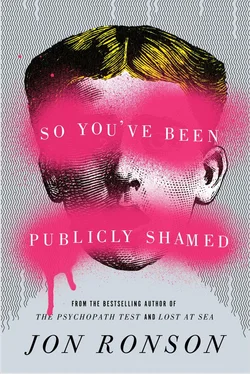It merited a mention straightaway. There was a whiteboard. Our trainer for the day, John, stood next to it. “You,” he told us, by way of introduction, “are a bone being dragged over by two dogs that want to win. And if you get between the lawyer and his goal, you’re going to get hurt.” He surveyed the room. “Appreciate what the lawyer is trying to do. The lawyer hopes to drag you down. He’ll call you incompetent, inexperienced. You might start to feel angry, upset. He will try and drag you outside your area of expertise, your circle of facts. How? How will he try to do this?”
There was a silence. Then it dawned on the rookie experts that this wasn’t a rhetorical question.
“Facial expression?” the marine metallurgist said.
“What do you mean?” said John.
“Smiling or not smiling,” the metallurgist said. “Looking unmoved. Lulling us into a false sense of security and then pouncing. Looking bored?”
John wrote the suggestions down on the whiteboard.
“Unnerve us with a disbelieving, patronizing, or sarcastic voice?” asked the social worker.
“Might they snigger?” the lab technician asked.
“No, that would sound unprofessional,” said John. “But they might go for incredulity. They might say, ‘ Really? ’”
“What would happen if I nervously laugh?” the lab technician said. “Sometimes, when I’m under pressure, I nervously laugh.”
“Don’t,” John warned. “If you do, they’ll say, ‘Are you finding it funny ? My client isn’t.’”
“Are we allowed to ask them to stop if it gets too much for us?” the marine metallurgist said.
“No,” said John. “You aren’t allowed to ask them to stop. Any other guesses?”
“Pretend to mispronounce your name?” someone said.
“Silence?” someone else said. Everyone cringed at the thought of silence.
“Should we be concerned about the color of our clothes?” asked a care worker. “I hear someone wearing brown is considered less believable.”
“That’s too deep for me,” said John.
—
I assumed that by lunchtime John would move away from shaming familiarization to other types of courtroom familiarization. But, really, that never happened. It turned out that shaming was such an integral part of the judicial process that the day was pretty much all about it. In the afternoon the experts were taught shame-avoidance techniques. When they first enter the dock, John told them, they should ask the court usher to bring them a glass of water. That would give them a moment to settle their nerves. They mustn’t pour the water themselves, but instead ask the court usher to. When the lawyer asks them a question, they should swivel on their hips and deliver their answer to the judge.
“They’ll have a much harder time breaking you down that way,” John said. “Oddly enough, we like to look at our tormentors. Maybe it’s linked into the Stockholm syndrome.”
—
The day ended with a mock cross-examination — a chance for the rookie experts to enact what they had learned. Matthew the marine metallurgist was the first to take the fake witness stand. John asked me to pretend to be the judge. Everyone smiled supportively at Matthew. He was a young man, wearing a pink shirt and a pink tie. He was shaking a little. He poured himself a glass of water. The water in the glass shook like a pond during a minor tremor.
He forgot to ask the usher to pour him a glass of water, I thought.
“Tell me your qualifications,” said John, taking the role of the cross-examining lawyer.
“I have an upper first-class degree, sorry, second-class degree in metallurgy,” said Matthew, looking John in the eye.
Then he bowed his head, like a geisha.
Why is he not turning to face me? I thought.
Matthew’s role-play lasted fifteen minutes. His face turned as crimson as a rusted cargo container as he mumbled about corroded coils. His mouth was dry, his voice trembling. He was a wreck.
He’s weak, I felt myself think. He’s just so weak .
Then I caught myself. Judging someone on how flustered he behaves in the face of a shaming is a truly strange and arbitrary way of forming an opinion on him.
• • •
I started corresponding with a woman from the Scottish town of New Cumnock. Her name was Linda Armstrong. One September night Linda’s sixteen-year-old daughter, Lindsay, was on her way home from a nearby bowling alley when a fourteen-year-old boy from the town followed her off the bus, coaxed her into a park, pushed her to the ground, and raped her. At the boy’s trial Lindsay was cross-examined by his lawyer, John Carruthers. Linda sent me a copy of the court transcript. “I have never read it,” she wrote to me, “because I couldn’t face it.”
LINDSAY ARMSTRONG:He started following behind me and he was asking me out and everything and I kept saying no and then I walked away from him and then he followed behind me and he pulled my arm like that and he started trying to kiss me and everything and I kept shoving him away. I told him to leave me alone and then he shoved me down…
JOHN CARRUTHERS:I wonder if we could see label number 7 please. Do you recognize those?
LINDSAY ARMSTRONG:Uh huh.
JOHN CARRUTHERS:What are they?
LINDSAY ARMSTRONG:My pants.
JOHN CARRUTHERS:Those are the pants that you were wearing that day?
LINDSAY ARMSTRONG:Uh huh.
JOHN CARRUTHERS:I wonder if you could hold them up to allow people to see them. Would it be fair to describe those pants as flimsy?
LINDSAY ARMSTRONG:I don’t think what kind of pants I wear has anything to do with…
JOHN CARRUTHERS:Well, hold them up again. It has got a name, the design of it, hasn’t it? What’s it called? Is it not a thong?
LINDSAY ARMSTRONG:Yes.
JOHN CARRUTHERS:I beg your pardon, Miss Armstrong. If I could ask you to hold them up?
LINDSAY ARMSTRONG:Sorry.
JOHN CARRUTHERS:Now you can see through those pants, is that correct?
LINDSAY ARMSTRONG:Uh huh.
JOHN CARRUTHERS:What does it say on the front?
LINDSAY ARMSTRONG:Little devil.
JOHN CARRUTHERS:Sorry?
LINDSAY ARMSTRONG:Little devil.
“Lindsay told me she was disgusted and very embarrassed about him making her hold up her underwear,” Linda e-mailed me. “She said she put them back down quickly and he shouted at her to pick them up again. Purely to let the jury see what type of underwear she wore. I think this was probably the most stressful part of the cross-examination for her, as she didn’t ever want to see those clothes again. There was absolutely no need for her to read out what was written on the front of them.”
The boy was found guilty. He was sentenced to four years in a young-offenders’ institution (he eventually served two). Three weeks after the cross-examination, Lindsay’s parents found her in her bedroom at two a.m. She had put on “Bohemian Rhapsody” and had taken a lethal overdose of antidepressants.
—
A shaming can be like a distorting mirror at a funfair, taking human nature and making it look monstrous. Of course, it was tactics like those John Carruthers had used that compelled us to believe we could do justice better on social media. But still: Knee-jerk shaming is knee-jerk shaming and I wondered what would happen if we made a point of eschewing the shaming completely — if we refused to shame anyone. Could there be a corner of the justice system trying out an idea like that? It turned out that there was. And it was being run by about the last person you’d expect.
Читать дальше












